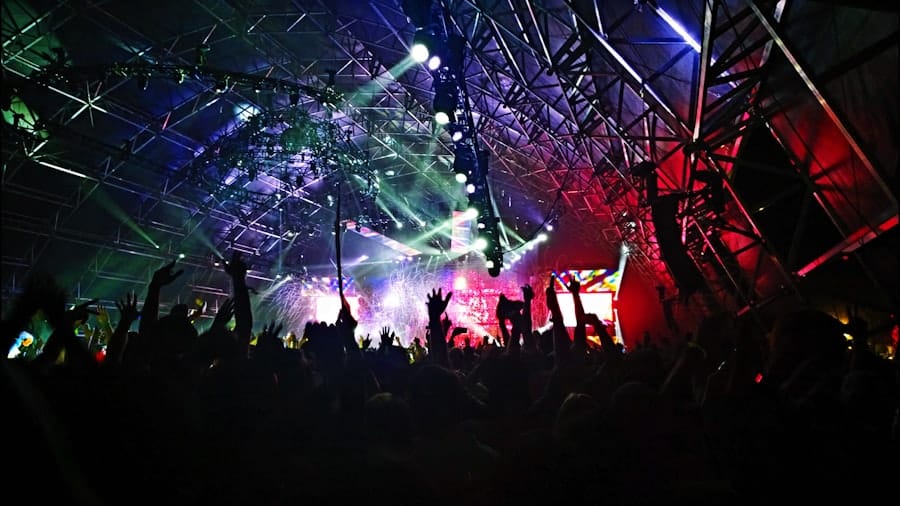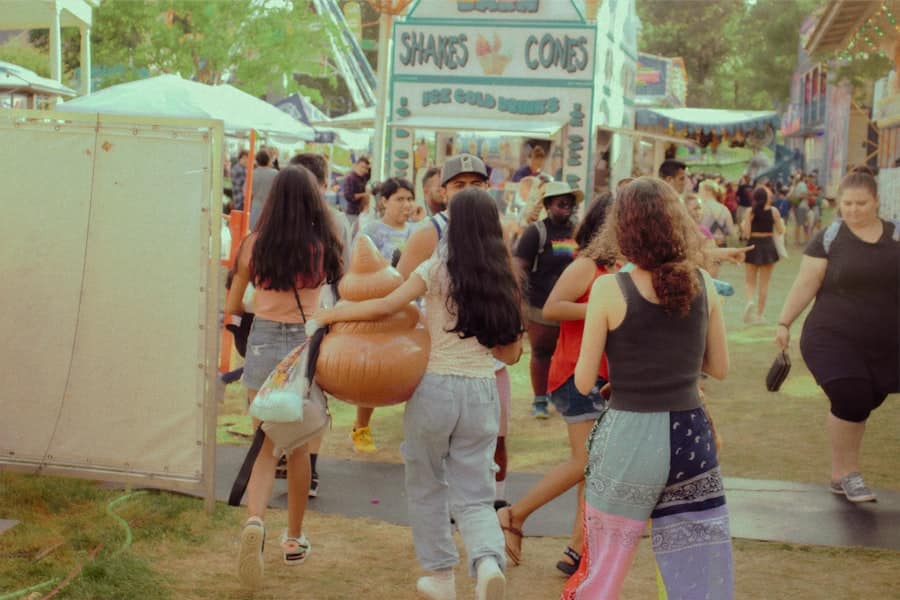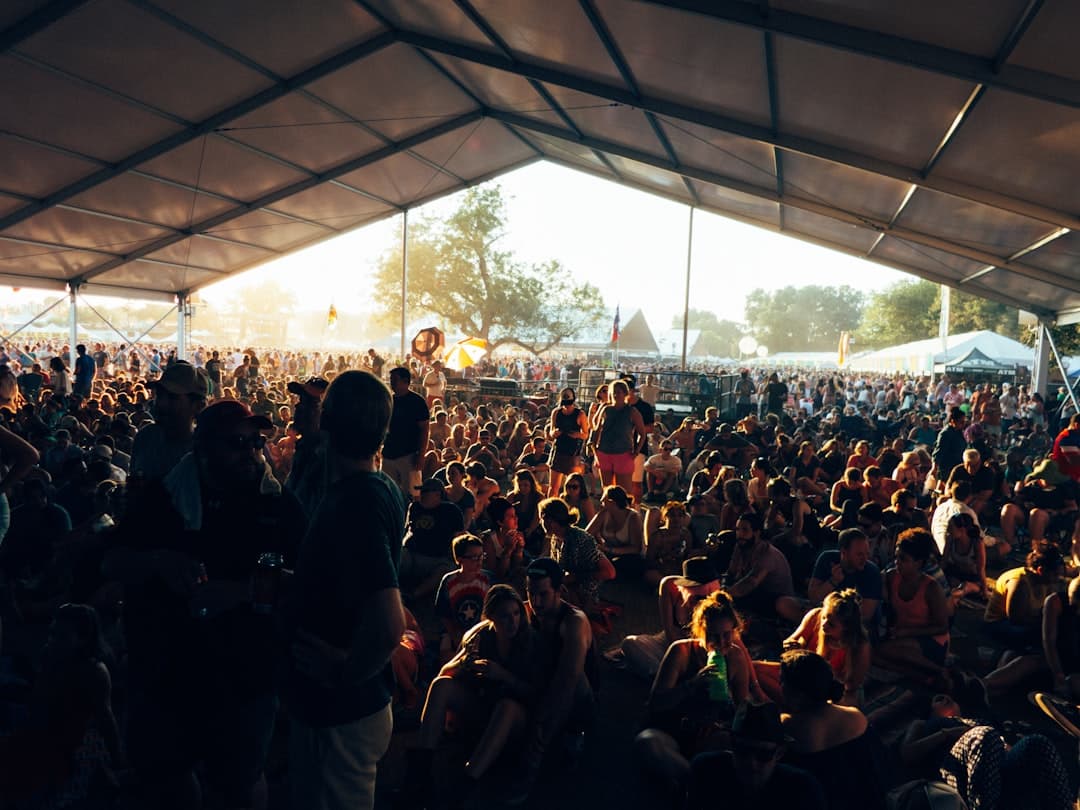The evolution of music festivals has taken a remarkable turn with the advent of virtual reality (VR) technology. Virtual reality music festivals offer an innovative platform that transcends geographical boundaries, allowing fans to experience live performances in immersive environments without the constraints of physical attendance. This transformation is not merely a response to the challenges posed by global events, such as the COVID-19 pandemic, but rather a significant shift in how music is consumed and experienced.
The concept of attending a festival from the comfort of one’s home, while still feeling the energy and excitement of a live event, has captured the imagination of both artists and audiences alike. In recent years, several pioneering VR music festivals have emerged, showcasing a diverse array of genres and artists. Events like “The Wave” and “Tomorrowland Around the World” have set the stage for what is possible in this new realm.
These festivals utilize cutting-edge technology to create stunning visual landscapes and interactive experiences that engage attendees in ways traditional festivals cannot. As the music industry continues to adapt to changing consumer preferences, VR music festivals represent a bold new frontier that promises to redefine the relationship between artists and their fans.
Key Takeaways
- Virtual reality music festivals offer a new way to experience live music from the comfort of your own home.
- Immersive experiences and interactivity allow attendees to feel like they are part of the festival, with features like 360-degree views and interactive elements.
- VR music festivals have the potential to be more accessible and inclusive, allowing people from all over the world to attend without the barriers of physical location or mobility.
- Advancements in technology and production have led to high-quality audio and visual experiences, creating a more realistic and engaging environment for attendees.
- VR music festivals have the potential to impact the music industry by providing new revenue streams and reaching a wider audience, while also creating opportunities for collaboration and innovation.
Immersive Experiences and Interactivity
One of the most compelling aspects of virtual reality music festivals is the immersive experience they provide. Unlike traditional concerts, where the audience is often limited to a fixed perspective, VR allows attendees to explore dynamic environments that enhance their connection to the performance. For instance, users can choose their vantage point, whether it be front-row center or perched atop a virtual mountain overlooking the stage.
This level of interactivity transforms passive listeners into active participants, fostering a deeper emotional engagement with the music. Moreover, VR music festivals often incorporate gamification elements that further enhance interactivity. Attendees can collect virtual items, participate in challenges, or even interact with other festival-goers through avatars.
This gamified approach not only makes the experience more enjoyable but also encourages social interaction among fans who may never have met otherwise. For example, during a VR festival, users might team up to complete quests or share their favorite moments in real-time, creating a sense of camaraderie that mirrors the communal spirit of physical festivals.
Accessibility and Inclusivity

Virtual reality music festivals have the potential to democratize access to live music experiences. Traditional festivals often come with significant barriers, including high ticket prices, travel expenses, and physical limitations for those with disabilities. In contrast, VR festivals can be attended from anywhere in the world, allowing individuals who may not have been able to afford or physically attend a live event to participate fully.
This inclusivity is particularly important in an industry that has historically favored those with greater resources. Furthermore, VR technology can be tailored to accommodate various needs, making it easier for individuals with disabilities to enjoy live performances. For instance, features such as closed captioning for deaf attendees or customizable environments for those with sensory sensitivities can enhance the experience for all participants.
By breaking down these barriers, virtual reality music festivals not only expand their audience but also foster a more diverse and inclusive community of music lovers.
Advancements in Technology and Production
The success of virtual reality music festivals hinges on continuous advancements in technology and production techniques. High-quality graphics, spatial audio, and seamless streaming capabilities are essential components that contribute to an engaging experience. Companies specializing in VR technology are constantly innovating to improve these aspects, ensuring that users feel as though they are truly present at the event.
Moreover, the integration of artificial intelligence (AI) and machine learning into VR platforms is paving the way for personalized experiences. AI can analyze user preferences and behaviors to curate tailored content, suggesting performances or environments that align with individual tastes.
This level of customization not only enhances user satisfaction but also encourages repeat attendance at future events. As technology continues to evolve, the production quality of virtual reality music festivals will likely reach new heights, further blurring the lines between physical and digital experiences.
Impact on the Music Industry
The rise of virtual reality music festivals is reshaping the landscape of the music industry in profound ways. For artists, these platforms offer new revenue streams and opportunities for exposure. With traditional touring significantly impacted by global events, many musicians have turned to VR as a viable alternative for reaching their audiences.
By performing in virtual environments, artists can connect with fans worldwide without the logistical challenges associated with physical tours. Additionally, VR festivals provide a unique opportunity for emerging artists to showcase their talent alongside established names. This democratization of performance opportunities can lead to increased visibility for lesser-known musicians who may struggle to secure slots at traditional festivals.
As a result, VR music festivals are not only revitalizing the industry but also fostering a more diverse array of voices within it.
Social Connection and Community Building

At their core, music festivals are about connection—between artists and fans, as well as among attendees themselves. Virtual reality music festivals excel in creating social spaces where individuals can come together to share their love for music. The ability to interact with others through avatars fosters a sense of community that transcends physical limitations.
Users can chat, dance, and celebrate together in real-time, creating shared memories that enhance their overall experience. Moreover, many VR platforms incorporate social features that allow users to form groups or join communities based on shared interests. These online spaces can serve as hubs for fans to discuss their favorite artists, share concert experiences, or even collaborate on creative projects inspired by the festival.
By nurturing these connections, virtual reality music festivals contribute to a sense of belonging among attendees, reinforcing the idea that music has the power to unite people from all walks of life.
Potential Challenges and Limitations
Despite their many advantages, virtual reality music festivals are not without challenges and limitations. One significant hurdle is the technological barrier that may prevent some individuals from participating fully. While VR headsets have become more accessible over time, they still represent a financial investment that not everyone can afford.
Additionally, users may encounter technical issues such as connectivity problems or hardware malfunctions that can detract from their experience. Another concern is the potential for isolation in a digital environment. While VR fosters social interaction among attendees, it cannot replicate the physical presence and energy of a live concert setting.
Some fans may find it difficult to engage fully in a virtual space compared to being surrounded by thousands of fellow concert-goers. This raises questions about whether VR can truly replace the communal experience of traditional music festivals or if it serves as a complementary alternative.
Future of VR Music Festivals
Looking ahead, the future of virtual reality music festivals appears promising as technology continues to advance and consumer interest grows. As more artists embrace this medium as a viable performance platform, we can expect an increase in high-profile events that push the boundaries of creativity and innovation. Collaborations between musicians and tech companies will likely lead to groundbreaking experiences that redefine what it means to attend a concert.
Furthermore, as VR technology becomes more mainstream and affordable, we may see an expansion in audience demographics participating in these events. The potential for hybrid models—combining physical and virtual elements—could also emerge, allowing fans to choose how they want to experience their favorite artists live. Ultimately, virtual reality music festivals represent an exciting evolution in how we engage with music and each other, paving the way for new forms of artistic expression and community building in an increasingly digital world.
Virtual reality (VR) music festivals are revolutionizing the way fans experience live music, offering immersive environments that transcend geographical boundaries. This transformation in fan engagement is part of a broader trend of technological innovation across various industries. For instance, the evolution of technology is also evident in the smartphone market, where choosing the right device can significantly enhance user experience. To explore how technology is influencing consumer choices in another domain, you might find this article on how to choose the right iPhone for you in 2023 insightful. It delves into the factors to consider when selecting a smartphone, highlighting the importance of aligning technology with personal needs and preferences.
FAQs
What are VR music festivals?
VR music festivals are events that take place in virtual reality, allowing participants to attend and experience live music performances from the comfort of their own homes using VR headsets.
How do VR music festivals change fan experiences?
VR music festivals change fan experiences by providing a more immersive and interactive way to enjoy live music. Fans can feel like they are actually at the festival, interacting with other attendees and feeling the energy of the performances.
What technology is used in VR music festivals?
VR music festivals use virtual reality technology, including VR headsets, 360-degree cameras, and spatial audio to create a realistic and immersive experience for participants.
What are the benefits of VR music festivals?
The benefits of VR music festivals include accessibility for fans who may not be able to attend in-person events, the ability to connect with a global audience, and the potential for innovative and creative experiences that go beyond traditional live music events.
Are VR music festivals becoming more popular?
Yes, VR music festivals are becoming more popular as technology advances and as the demand for virtual experiences grows. Many artists and event organizers are exploring the potential of VR music festivals to reach new audiences and create unique fan experiences.

